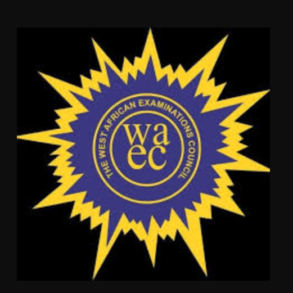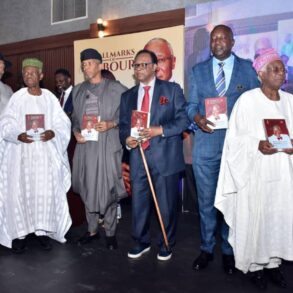INTRODUCTION
In today’s rapidly evolving world, characterized by an intricate web of connections and interdependencies, the concept of global citizenship has emerged as an essential and transformative notion that transcends national boundaries. It serves as a catalyst for fostering cultural understanding and promoting unity in diversity. The increasing interconnectedness brought about by the advancement in technology, global trade, and travel necessitates the development of a global perspective and a profound sense of responsibility towards the global community.
Education assumes a pivotal role in nurturing global citizenship by equipping individuals with indispensable knowledge, skills, and attitude required to navigate and thrive in an increasingly interconnected and culturally diverse world. It serves as the gateway through which individuals can acquire a comprehensive understanding of different cultures, thereby fostering an appreciation for diversity and facilitating active engagement with global issues. By empowering individuals to become global citizens, education becomes a powerful force for promoting cultural understanding and fostering positive transformation on a global scale.
As the world becomes more interconnected, the need to embrace global citizenship becomes increasingly apparent. Technological advancements, particularly in communication and transportation, have dismantled the barriers of distance and time, facilitating seamless connections between individuals from dispersed cultures. This heightened interconnectedness paves the way for enhanced cultural exchange, collaboration, and mutual understanding. It calls for individuals to cultivate a global perspective that transcends their immediate surroundings, enabling them to navigate the complex dynamics of our globalized world.
Moreover, education instills in individuals the skill required to address global challenges effectively. By integrating global perspectives into various subjects, education enables students to develop critical thinking skills necessary for analyzing complex global issues. Students learn to recognize the interconnectedness of social, economic, and environmental challenges and explore innovative solutions to address them. Education also nurtures important skills such as communication, collaboration, and problem-solving, empowering individuals to take an active role in shaping a more sustainable and equitable world.
Global citizenship encourages individuals to embrace diversity, recognize their shared humanity, and actively contribute to the well-being of the global community. It calls for a shift in mindset, from focusing solely on national interest to considering the broader implications of actions on a global scale. Education serves as the foundation for fostering this mindset by providing individuals with the necessary tools to understand, appreciate, and engage with diverse cultures.
UNDERSTANDING GLOBAL CITIZENSHIP
Global Citizenship is a notion that encourages the idea of citizenship beyond political or geographical identity. It is based on moral and ethical responsibilities related to the universal rights of humankind to live in peace and harmony in the global village, where interdependence and interconnectedness are intertwined and sustainable and fairer living must be practiced.
Global Citizenship encompasses the recognition of our interconnectedness with the world and the responsibility we have as individuals to contribute to its well-being. It involves a sense of belonging to a larger global community and the willingness to engage in activities that address global challenges such as poverty, inequality, climate change, and human rights violations. Global citizens possess a deep understanding of different cultures, appreciate diversity, and strive for social justice and sustainable development.
Below are some of the roles Global Citizenship should play:
Global Citizenship Education (G.C.E.) should promote the ethics of caring, or what “Saint Ignatius” termed “Cura Personallis.” The care of the individual person and human rights remain central characteristics of G.C.E. A global ethics of caring is central to the implementation of Global Education, embracing as well as a key concept from Feminist Theory.”
G.C.E. is framed within a social Justice education framework; without the bare essentials, we cannot fully accomplish citizenship. Bare essentials speak of economic citizenship, including the right to a job, education, health care, affordable housing, and learning over the course of life. G.C.E. cannnot substitute for national citizenship but has to add value to local, national, and regional citizenships.
C.E. helps to produce a new narrative in education. The new G.C.E. seeks an education beyond numbers and technocratic thinking and beyond cognitive learning. It pursues holistic learning that encompasses ethics, aesthetics, spirituality, and art and includes the goals of peace-building in the spirit of ‘Jacques Delors’ “UNESCO Commission”, learning. The Treasure within, particularly the principle of learning to live together with the rest of the earth.
EDUCATION AS A TOOL FOR CULTURAL UNDERSTANDING
Education plays a vital role in fostering cultural understanding, which is a fundamental aspect of global citizenship. By introducing students to diverse cultures, traditions, languages, and histories, education provides a platform for individuals to develop empathy, respect, and appreciation for different ways of life. Through multi-cultural education, students learn to challenge stereotypes, combat discrimination, and celebrate diversity. They gain insights into the richness and complexity of human experiences, fostering a sense of interconnectedness and unity amidst diversity.
Culture and education are inseparable and yet complementary, with multiple points of interaction. Culture paves the way for education, while education is responsible for flavoring the cultural values in life. Therefore, both have to be interwoven in various ways. A sense of pride in our culture has to manifest itself through all the stages of an individual’s growth. Primary education is where it all starts, and the child begins to respect the importance of a value-based life as he sees things happening and the behaviours of others around him.
An education system is the reproductive organ of every culture; education includes both formal and informal transmission of knowledge, skills, and attitudes. Individual members of a society’s culture are a living entity that transcends all the Society’s individual members. A culture changes over time but has a recognizable continuity of basic values and behavioural patterns that distinguishes it from other cultures. If an educational system is uttered, its transmission of culture will be distorted. The deliberate alteration of an educational system can be a very effective way to change a culture.
Here are some Influences of Education On culture:
Preservation of culture; culture is the blood vein of a society, which needs to be conserved. It is an important function of education to help in the preservation of culture or social heritage.
Transmission of Culture: In addition to the preservation of culture, it is the task of education to maintain the continuity of culture by handing down the existing cultural experiences, values, traditions, customs, etc. from one generation to another through its various programs and practices.
Promotion Of Cultures: Besides preservation and transmission, another vital function of education is to modify the existing cultural patterns in light of changes visible in the needs and demands of society. Education performs by constantly recreating and reconstructing human experiences for the promotion and enrichment of Culture.
equips Man To Adapt To Changing Cultural patterns. It is an admitted fact that every generation after generation modifies the old and archaic cultural forms and adds new ones to their advantage.
Restoring Unity Of Mankind Through Diffusion Of Culture: It is a dire necessity of civilization that unity of mankind be restored, and it is to be made possible through education, which assists in the diffusion of culture in an effective manner.
Therefore, it is necessary to inculcate the importance of education and value-based living for the sustainable development of the rural sector. Education founded on strong culture and values will help students understand and acknowledge the significance of culture in the context of development and social change.
From the foregoing discussion, it is crystal clear that there exists a close relation between education and culture; education socializes an Individual on the one hand, and it preserves, transmits, and promotes the culture of a society on the other. In brief, education and culture are mutually interwoven, complementary, and supplementary in all their aspects; it is education that reifies the culture.
http://www.angelfire.com/hiz/hawaiinsovereignity/edtransmitsculture.html.
Promoting CULTURAL EXCHANGE AND DIALOGUE One of the key ways education fosters cultural understanding is by promoting cultural exchange and dialogue. Schools and universities serve as spaces where individuals from different cultural backgrounds come together, fostering interactions and opportunities for learning from one another. This exposure to diverse perspectives and experiences allows students to develop a broader worldview, challenge preconcieved notions, and break down barriers of ignorance and prejudice. Cultural exchange programs and student exchange international study programs further enhance this process by providing immersive experiences in different cultures and promoting empathy and understanding.
Support should continue to be given to networks and initiatives for cultural dialogue at all levels while ensuring the full and inclusive engagement of all actors and stakeholders involved. It’s crucial to develop measures to enable members of communities and organizations to organize and participate in projects to counter cultural stereotyping. Support should also be given to initiatives aimed at developing spaces for cultural interactions and cultural exchanges that promote acceptance and tolerance between people from different backgrounds within an overall process approach.
Create opportunities to learn and practice cultural dialogue in educational institutions and play an active role in internalization at home and abroad. It’s significant to mention the importance of internationalizing learning outcomes for all students. Purposeful use of cultural diversity can create more inclusive learning settings and develop inter-national and inter-cultural perspectives.
Integrating GLOBAL perspectives INTO curriculum:
In order to foster global citizenship and cultural understanding, educational curricula need to integrate global perspectives across various disciplines. By infusing global issues, histories, and perspectives into subjects such as history, geography, social sciences, and literature, students gain a comprehensive understanding of the world and its diverse cultures.
This integration helps students appreciate the interconnectedness of global challenges and promote critical thinking skills necessary for analyzing complex global issues; moreover, by including literature, arts, and stories from different cultures, education nurtures empathy and enables students to view the world through multiple lenses.
It is also important for an institution to make quality teaching and global learning important; it is not enough to say it, but the institutional leaders have to demonstrate their commitment by rewarding teachers for their integration of global learning in the form of faculty awards, promotions, tenure, and reassigned time. We live in a diverse society and world, and employers indicate they want college graduates to have the skills to work with others who are different and to appreciate different perspectives. That means we need to prepare our students to become effective global citizens.
The general education, the major, and the co-curriculum should work in harmony to provide students with the knowledge and skills to work and live in a pluralistic society. It is gratifying when faculty agree that global learning is important and work to make it happen in the curriculum.
DEVELOPING INTER-CULTURAL COMPETENCE
Education also plays a role in developing inter-cultural competence, which is the ability to communicate effectively and respectfully across cultural boundaries. Through language learning programs, students acquire linguistic skills that enable them to engage with people from different cultures; moreover, inter-cultural competence involves developing skills Such as active listening, empathy, conflict resolution, and negotiation, which are essential for effective inter-cultural communication.
By providing opportunities for collaboration and group work with diverse peers, education helps students develop these skills, preparing them to navigate an increasingly interconnected world.
Using ICC at work has the potential to offer many benefits to employees and employers alike, but this outcome depends on how well the company incorporates ICC strategies in the workplace. Here are five ICC-based ideas you can implement at the office to ensure clear, transparent communication.
1) Practice active Listening: Listening well is the first step to achieving cultural competency; it inspires connectedness between co-workers, improves employees well-being, and strengthens relationships among colleagues.
2) Enhance Cultural awareness: Increased cultural awareness allows you to see beyond employees’ external behaviors and actions so that you can understand how their beliefs, values, and traditions shape the way they communicate. This is important for the sake of fostering harmony between employees and employers.
3) Be careful with word choice. Keeping your employees and yourself up-to-date with words or phrases that may make colleagues from other cultures feel uncomfortable or offended is necessary to develop intercultural communication competencies.
4) Normalize clarifying Instructions: Making sure employees feel comfortable asking you or your co-workers to clarify instructions can prevent mistakes resulting from a lack of understanding.
5) Promote a Culture of Respect: Respecting cultural differences is crucial to fostering workplace inter-cultural competence. If respect anchors your team, then there will be fewer disputes that could harm working relationships.
ENCOURAGING GLOBAL SERVICES AND SOCIAL RESPONSIBILITIES
Social responsibility benefits society and the environment while lessening their negative impacts. Companies engaging in social responsibility can do so in a number of ways. Including making changes that benefit the environment, engaging in ethical labor practices, and promoting volunteering and philanthropy.
Globalization is a “dynamic set of social processes that is transforming our present social condition of nationality into one of globality, characterized by tight global economic, political, cultural, and environmental interconnections that make most of the currently existing borders and boundaries irrelevant.
The economic dimension of globalization is highly significant in shaping contemporary societies and organizations through the intensification and stretching of economic interrelations worldwide. Its key components include the deregulation of interest rates, the removal of credit controls, and the privatization of government-owned banks and financial institutions. The globalization of financial trading allows for increased mobility among different segments of the financial industry with fewer restrictions and opportunities.
Greater investment the enhanced role of international economic institutions such as the International Monetary Fund (IMF), World Bank, and World Trade Organization (WTO) enjoys the privilege of making and enforcing the rules of the global economy. In return for supplying much-needed loans to developing countries, these institutions implemented structural adjustment programs, mainly directed at countries with large foreign debts.
It can be observed the impacts that trade liberalization policies have on industries in the third world. But globalization is a multidimensional concept that is not easily reduced to just the economic dimension. The intensification of global economic interconnections is set into motion by a series of political decisions.
The political dimension of globalization refers to the intensification and expansion of political interrelations across the globe. Recent economic developments such as trade liberalization and deregulation have significantly constrained the set of political options open to states. Thus, global markets frequently undermine the capacity of governments to set independent national policy restrictions.
However, the worldwide intensification of economic and political interaction does not consider in sufficient detail the cultural feasibility of global democracy, which makes the possibility of resistance and opposition just as real as mutual accommodation and tolerance of differences.
The Role OF Technology
1) They lower transaction costs for group formation and action. While we have always come together to engage in community change through “weak ties,” the potential of the Internet is that we will be able to do this much more effectively.
2) They shift time. Group members don’t have to be in the same room at the same time to “meet.” They can coordinate activities over days and months, and members can chime in at their convenience, whether it’s 2 p.m. or 3 a.m.
They facilitate easy communication.
Spreading the word now only takes one click and maybe one tweet. That’s all anyone needs to do these days to share something with a social network.
Given these benefits, what role should technology play in fostering engagement? How can technology help citizens become more involved with one another and more active in their communities?
Summit participants explored this very question in one of the first sessions.
Technology for Engagement, they concluded, should create and support opportunities and capacities for people to transact with others for the common good.
Engagement technology should: • connect people; • build relationships; • increase participation in governance; • facilitate discovery; • reveal common needs and shared values; • enhance the ability to act.
Written by Enede Ada Joy, a 100L English Education Student at Delta State University Abraka.
References:
Chatopenai. com
fairgaze. com
theintactone. com








